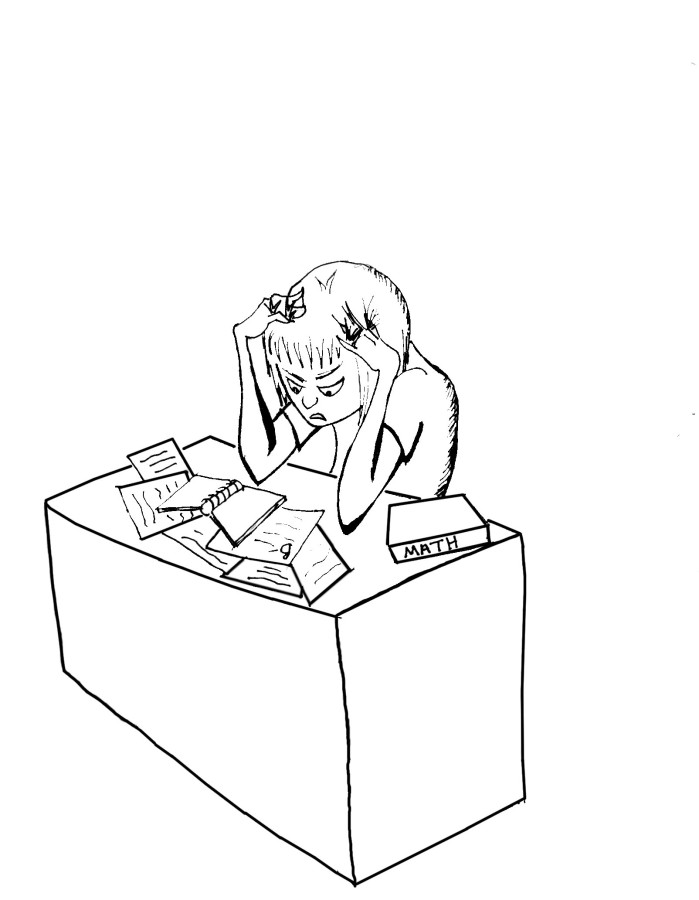Day after day, students go to school for seven hours, go home and do hours of homework, and then do it all over again the next day. Many participate in sports on top of that, creating a busy schedule for 180 days in a row to survive another year. All this leads to stress and loss of knowledge year after year. Year-round schooling can solve these problems for both students, as well as all employees of the school.
The schedule for year-round schooling generally has frequent longer breaks, although the summer break is significantly shorter than what LZ has now. The number of days of school between year-round schooling and the traditional schedule is the same, just separated differently. Although the term “year-round school” is intimidating, it academically helps students, as well as teachers and administration.
“The perception of a lot of students when they hear year-round schooling is the current system of vacation but filled with more school,” Aaron Rogers, math teacher, said. “But that’s not how it is. There are a lot more mini-breaks other than one large break, but anytime there is change, people are intimidated by it.”
The number of school days of year-round schooling is very similar to the schedule LZHS currently follows. Each has 180 days of school and 185 days of break, but year-round school does away with an extended summer vacation and instead just spreads out the school days. In addition to the other breaks, year-round schooling has a fall break to help break up the year a bit more. All the other breaks are longer than what LZ follows now, except summer is shorter in order to compensate for the other lengthened vacations.
People’s misperceptions may add to the dismissal of year-round schooling, but students should realize the benefits it has to their education. With year-round schooling, teachers do not have to spend a large portion of the beginning of the year reviewing material taught the previous year, allowing classes to cover more depth within their lessons.
“Year-round school would prevent a lot of forgetting of previously mastered material,” Rogers said. “That time could be used more effectively, like to teach new, more challenging or farther material.”
Although many students would agree that summer break is a good time to recover from a long year, year-round schooling would not make a school year seem as long because it is more broken up, creating less stress.
Tests show about 2.6 months of learning is lost during the summer, and year-round schooling is a simple solution, according to an article on National Association for Year-round Education’s website. Due to the knowledge restrained rather than lost, scores on ACT testing for those students in school who participate in year-round schooling increases by about 2.34 points in math and 1.61 points in reading, according to Statistic Brain’s website.
It is a fact that the United States is often compared academically to other countries. Although the education in the United States is excellent, according to Rogers, the increase in academic strength might create equality with those excelling countries who participate in year-round schooling.
China can be argued to be one of the United States’ biggest international competitors academically, but a possible factor towards their intelligence level is nation-wide year-round schooling. Almost all schools in China follow the year-round form of schedule, according to China Culture’s website.
Their nation-wide academic determination is shown through world-wide academic rankings, where China ranked 5th in reading, 4th in math, and 2nd in science. On the other hand, the United States ranked 14th in reading, 25th in math, and 17th in science, according to an article on The Guardian’s website.
“If time is saved by not reviewing every year, that time can be used to learn new strategies that are on standardized testing,” Rogers said. “You can only imagine those scores will go up.”
Although the main focus of a school is to help the students grow in their intelligence, this system could also please many teachers. At the beginning of each year, teachers suffer from a lot of stress due to the fact that students forgot material necessary to continue the class.
“I can only speak for myself, but year-round schooling can alleviate a lot of stress that teachers have where they feel students have forgotten that of which we expect them to know,” Rogers said.
When students are not in a classroom environment, they do not apply themselves in the same way as they would if they were in school during the school year. It does not mean they are not learning, they just do not use the knowledge as if they were being lectured and tested on a weekly basis, Rogers said.
Although, planning around the new schedule may introduce a whole new type of stress to families, at least it would not reflect through test scored and grades or problems in the future. Also, the breaks are long enough for vacation, just at different times of the year.
“All I can say is that I see both sides. Obviously, this decision will not be made over-night,” Rogers said. “It has a lot of pros to student learning and understanding, but if not all teachers are on board with in, then it cannot happen., but it should be considered.”


Catalea • May 25, 2023 at 3:24 pm
This is a very helpful article. Im a student writing an opinion and this helps a lot.